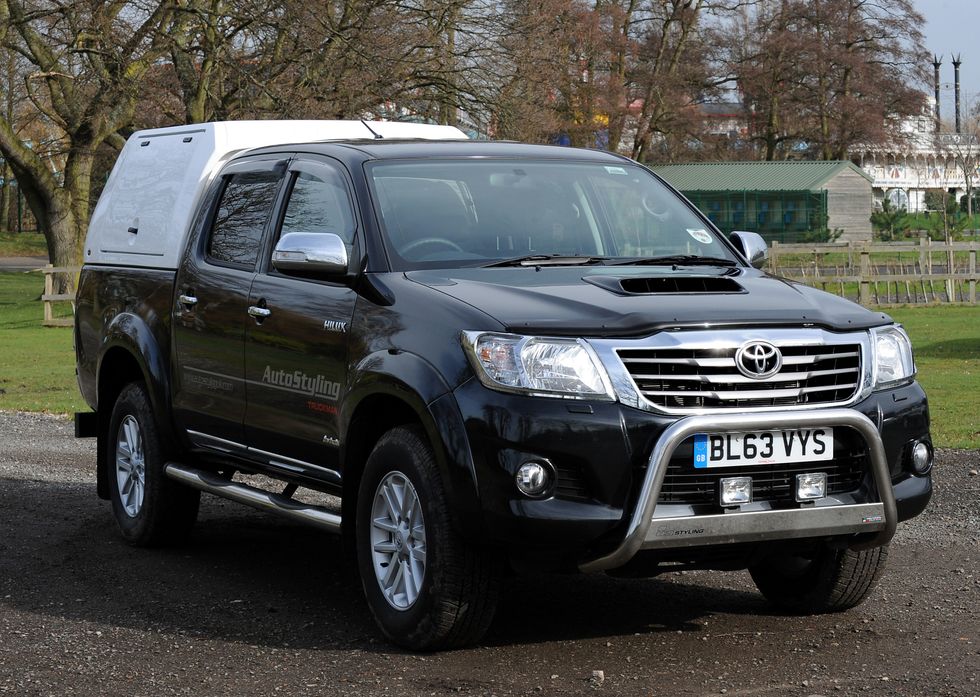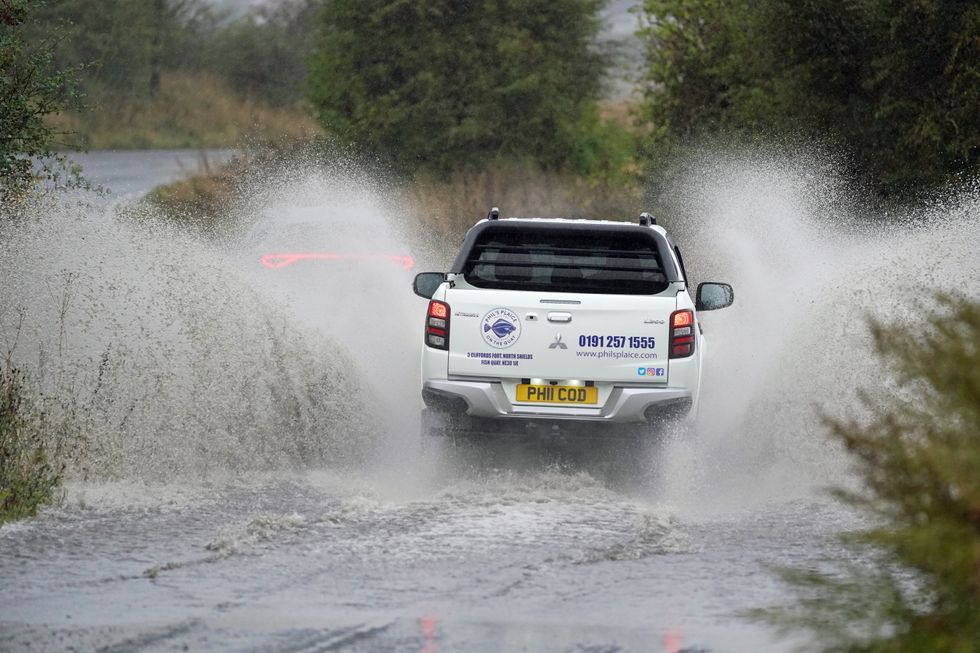WATCH: Rachel Reeves announces new tax measures for double pick-up trucks
GB NEWS
Drivers of double cab pick-up trucks face new taxes following HMRC reclassification
Don't Miss
Most Read
Trending on GB News
Drivers of a popular vehicle type have been warned they could face up to £8,000 tax increases after HMRC changes came into effect.
As of April 6, double cab pick-up trucks are being treated as company cars for tax purposes. It follows changes announced in the Budget last year.
The reclassification means these vehicles will no longer benefit from the favourable tax treatment traditionally given to light commercial vehicles.
Instead, they will face significantly higher Benefit-in-Kind (BiK) tax charges as they shift from commercial vehicle to car classification.
Do you have a story you'd like to share? Get in touch by emailingmotoring@gbnews.uk

Double cab pick-up trucks will be reclassified as company cars under the new tax rules
PAThe change affects vehicles with a payload of one tonne or more, which have historically been treated as commercial vehicles for tax purposes.
HMRC has recently updated its guidance to provide clarity for businesses ahead of the implementation date. Under the tax changes, a typical Ford Ranger, which costs around £60,000, will incur an annual BiK value of £4,020, resulting in yearly tax payments of £804 for basic rate taxpayers and £1,608 for higher rate taxpayers.
However, from this week, due to the vehicle's CO2 emissions exceeding 200g/km, the BiK value will surge to £22,200, calculated at 37 per cent of the list price.
This means basic rate taxpayers will face annual tax bills of £4,440, while higher rate taxpayers will need to pay £8,880. The change represents an additional yearly tax burden of £3,636 for basic rate taxpayers and £7,272 for higher rate taxpayers.
The change comes as the Government aims to align tax treatment with a Court of Appeal ruling involving HMRC and Coca-Cola, which clarified the correct application of the "primary suitability" test.
The ruling established that vehicles equally suited to convey passengers and goods, with no predominant suitability for carrying goods, should be classified as cars.
HMRC's updated guidance states that if a "vehicle has side windows behind the driver and passenger doors", it will be classed as a car.
Tax specialist Harvey Perkins explained: "It's pretty difficult, bar impossible, to argue that a double cab pick-up truck is anything other than a car under this new definition."
To ease the transition, the Government has announced special arrangements for employers who purchased, leased or ordered double cab pick-ups before April 6.
These businesses can continue using the existing BiK treatment until either the vehicle is disposed of, the lease expires, or April 5, 2029 - whichever comes first.
HMRC examples clarify that employers who purchased pick-ups before April 6, 2025, can rely on previous rules until disposal or 2029. Similarly, those who leased vehicles before the deadline can maintain current tax treatment until lease expiry or 2029.
A HMRC spokesperson told Fleet News: "If an employer transfers a double cab pick-up to another employee between April 6, 2025, and April 5, 2029, they may continue treating it as a van for tax purposes, provided there is no disposal, and the lease has not ended."
LATEST DEVELOPMENTS:
- Renault to reduce speed limits in popular model used by young drivers amid rise in fatal collisions
- Labour to ban petrol and diesel car sales by 2030 but will allow hybrids in major electric vehicle law change
- Highway Code changes would deal with 'key issue' amid calls for drivers to face regular 'assessment'

Some pick-up truck owners will be hit with huge costs from April 6
PATax specialist David Chandler, co-founder and director at HRUX, welcomed the clarification. He said: "This will be a relief to many fleet managers with double cab pick-ups on order.
"We are glad that the BVRLA and other bodies raised this with HMRC and they were able to clarify this before the start of the next tax year."
The updated HMRC guidance has expanded the definition of vehicles affected by the new rules to include extended, extra, king and super cab vehicles, such as the Toyota Hilux Extra Cab.








